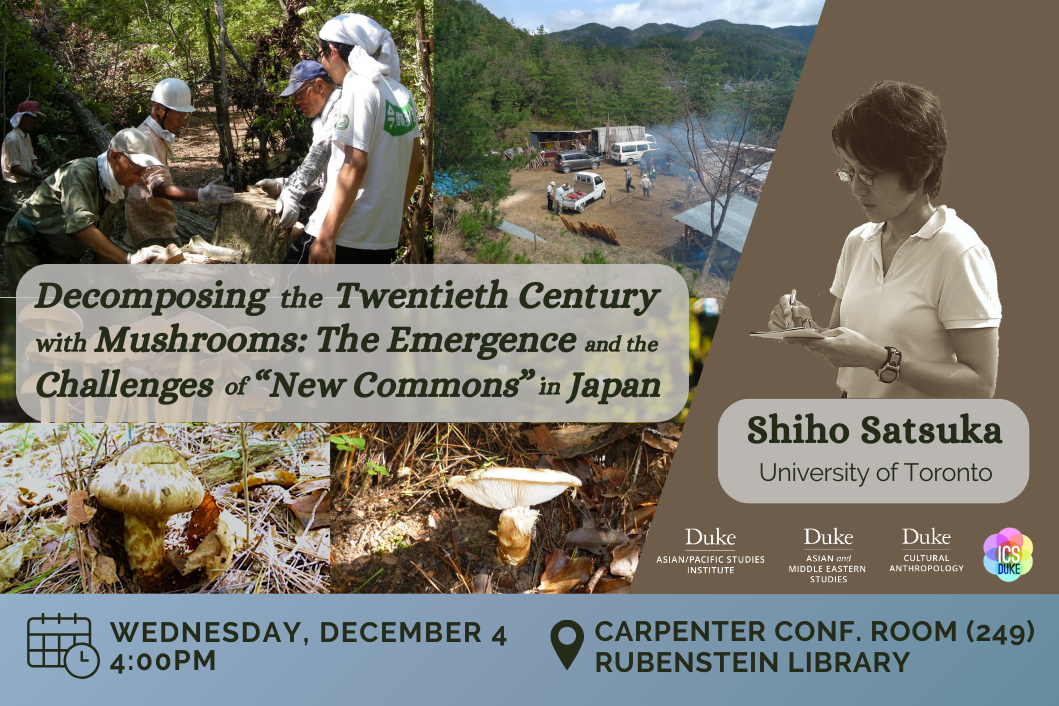Decomposing the Twentieth Century with Mushrooms: The Emergence and the Challenges of “New Commons” in Japan

In recent years, fungi have attracted popular imagination as a source for exploring new social relations, ethics and philosophy. The fungi's role as decomposers and relation builders in the ecosystem inspires scientists, social activists and artists to experiment with new practices. The common thread among diverse scientific, citizenry and artistic works is to challenge the fundamental values that have supported the development of industrial society and its environmental consequences, such as possessive individualism and human exceptionalism.
This talk traces the activities of scientists and citizens who engage in revitalizing forests to bring back matsutake mushrooms in Japan. It explores how this charismatic fungus inspired people to develop new social relations and environmental practices. How do their engagements with matsutake develop critical reflections on the history of the twentieth century, especially the industrialization and the colonial legacies in Japan and beyond? How does the matsutake guide people to develop new forms of common land usage and collective activities in post-industrial society? What are the challenges of maintaining the "new commons"?
About the speaker:
Shiho Satsuka is an Associate Professor of Anthropology at the University of Toronto. Her research focuses on the politics of knowledge, anthropology of environment, nature, science, and capitalism. Her first book, "Nature in Translation: Japanese Tourism Encounters the Canadian Rockies" (2015), explores the politics of knowledge translation by analyzing the ways Japanese local tour guides translate Canadian national parks' ecological knowledge to tourists from Japan. She has also co-edited "The World Multiple: The Quotidian Politics of Knowing and Generating Entangled Worlds" (2019).
She is currently working on her second book project, tentatively entitled "Undoing the Twentieth Century with Mushrooms." The project traces interspecies encounters in mushroom science and satoyama forest revitalization movements inspired by the charisma of matsutake mushrooms. The project explores the possibilities and challenges of dissolving the twentieth-century style state-science-industrial complex and of generating practices of co-habitation among various human and nonhuman beings on the earth. She is also participating in some art projects which intersect visual arts and natural and social sciences to explore what we can learn from fungi.






